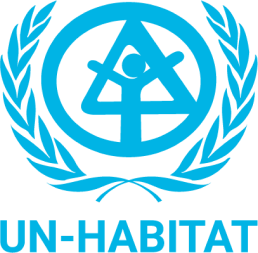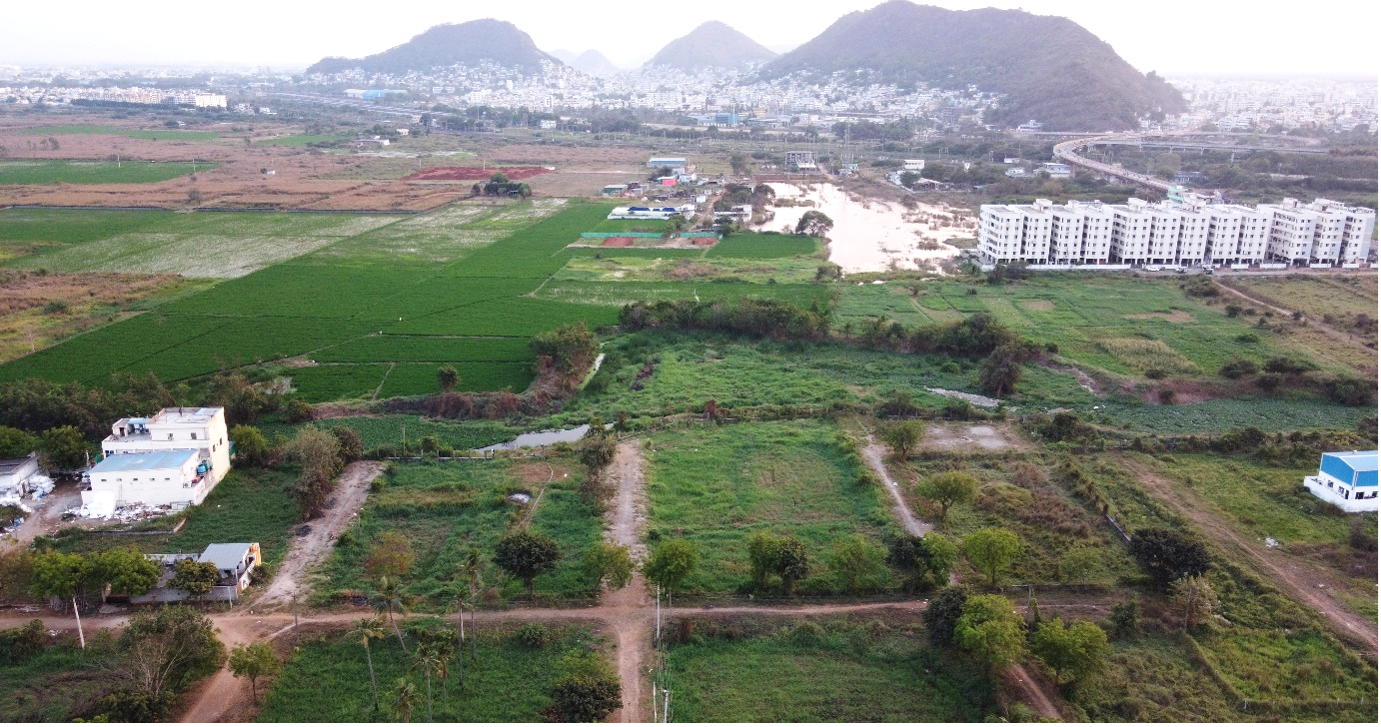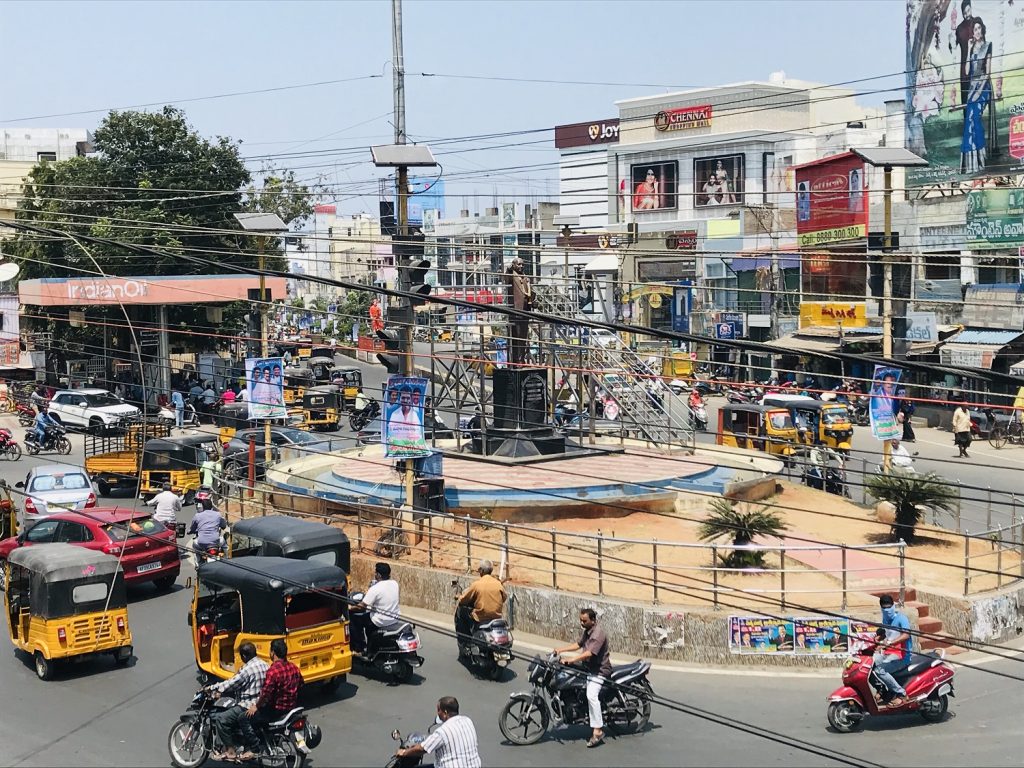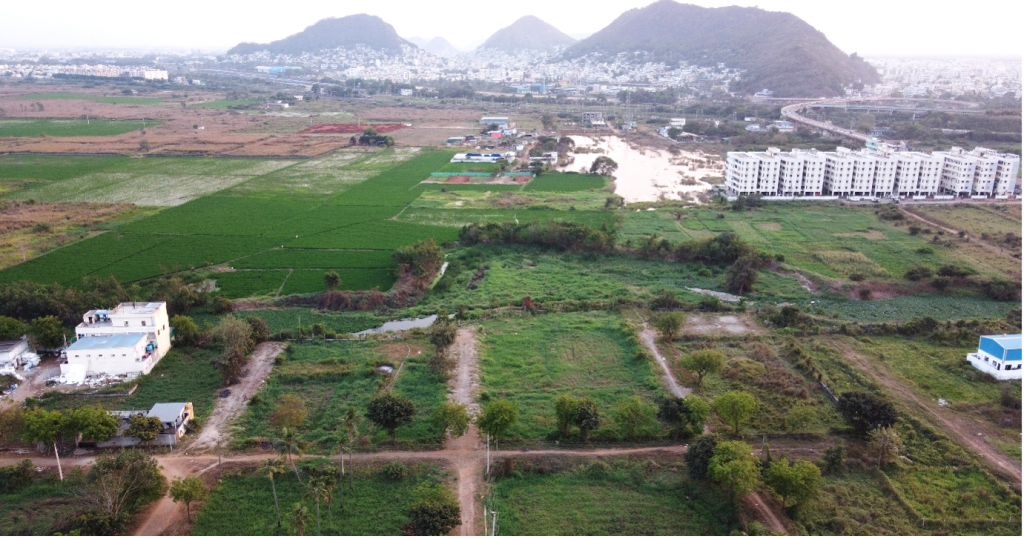Background
The Sustainable Cities project was developed within the context of GEF Sustainable Cities Integrated Approach Pilot (SC-IAP). GEF SC-IAP is an integrated program consisting of two tracks: (a) City-level projects in 27 cities across 11 countries, with around US$140 million in GEF grant funding. Each country is supported by one or several implementing agencies to manage the various projects in the participating cities; (b) The Global Platform for Sustainable Cities (GPSC), led by the World Bank with US$10 million in GEF grant funding.
In India, it is being implemented by United Nations Industrial Development Organization (UNIDO)with funding assistance from the Global Environment Facility (GEF) and in close cooperation with the Ministry of Housing and Urban Affairs (MoHUA), Municipal Corporations of Jaipur, Bhopal, Mysuru, Vijayawada and Guntur, as well as State Governments of Rajasthan, Madhya Pradesh, Karnataka and Andhra Pradesh.
Project Context
India, with a population of over 1.21 billion, account for 17.5% of the world population (Census of India 2011). According to the provisional figures of Census of India 2011, 377 million people live in the urban areas of the country. This is 31.16 % of the Country’s total population. It is expected that by 2030 India, 40% of the population will live in cities, almost a doubling of the urban population over the next two decades. Approximately 60% of GDP is derived from the Indian urban economy. This urbanization process has been occurring for many decades, and cities have become more crowded. it poses serious challenges for India’s service delivery systems and consequently for the living conditions in the cities. The lack of single institution at the municipal level with clear planning authority and institutional accountability for delivery of municipal services continues to challenge urban India to this day. The existing pace of urbanization is becoming a cause for increasing concern for managing the cities. Most of problems have their origin in unplanned development of cities leading to significant increase in energy use and waste generation, with increased pressure on food production systems, and which results in increase GHG emissions and in severity of environmental and social problems observed in Indian cities.
The role of cities in addressing global environmental issues is two-pronged – they are both sources of emissions and other types of pollution, as a consequence of their being economic power houses; and they can be avenues for providing innovative solutions for many of world’s most important environmental issues. As the world continues to urbanize, sustainable development challenges will be increasingly concentrated in cities. The project will be addressing following key sustainability issues faced by cities:
- High sprawl of urban areas leading to severe environmental, social, and economic problems
- Limited efficiency of urban structure with consequent economic losses
- Increased vehicles in shrinking transportation network, leading to pollution, and a waste of man-hours for commuting purposes
- Low environmental awareness of urban population resulting in unsustainable lifestyle:
Project Objectives and Components
The project aims to integrate sustainability strategies into urban planning and management to create a favourable environment for environmentally and financially sound investments in low carbon infrastructure and service delivery, thus building the resilience of pilot cities. The components of the project include:
- Component 1: Integrated urban planning and management – this will include the introduction of tools and internationally accepted methodologies for sustainable cities planning and management, setting indicators according to internationally-accepted standards; a major aspect of this is low-carbon and low-emission planning;
- Component 2: Investment Projects and Technology Demonstration – the pilot cities will all benefit from the service of mobilizing funding to support technology and/or infrastructure projects necessary for achieving better city services and environmental management;
- Component 3: Partnerships, Capacity Building and Knowledge Management – developing partnerships with private, public and civil society organizations in implementing initiatives for sustainable cities and building capacity of major players and stakeholders for better governance and project implementation in cities; sharing of experiences among Indian cities, and between Indian cities and those abroad which have advanced in building sustainable cities and also those which can learn from the Indian experience; this is also related to the Global Knowledge Platform being set up in relation to the overall sustainable cities program of the GEF.
UN-Habitat is spearheading Component 1 and the following section throws light on the main outputs-
- Output 1: Engage local governments (municipal corporations) in developing city metrics as a baseline assessment of city’s development context and status. This phase of work includes, at a granular level (ward) and city scale, data collection across 137 indicators covering 12 sectors, namely, governance and data management, finance and economy, housing and property, water, sanitation, waste management, clean energy, resilience, environment, public space-safety-urban form, transport, and social infrastructure. The performance of these sectors will be measured using an Urban Sustainability Assessment Framework (USAF).
DELIVERABLES
- “City Fact-Sheets” covering 56 primary indicators for 12 sectors, and “City Metrics Report” covering all 137 indicators.
- A narrative report profiling city’s existing urban context anchored to spatial/territorial conditions using city metrics report.
- Customized forms to collect data for the metrics report.
- A MS excel-based living document with all indicators and documentation including, data source, frequency of data collection, benchmarks, benchmark source, among other fields.
- Output 2: Undertake an assessment of city’s performance with application of Urban Sustainability Assessment Framework (USAF) across 12 sectors, and to draw findings of gaps and opportunities for each sector based on quantative, spatial, and descriptive metrics. The assessment also encompasses an integrated diagnostics of more than one indicator to identify their cumulative impact within the city’s development context. The objective of this component is, (i) to present evidence-based and spatial/territorial narrative of city’s current performance on national/international benchmarks and targets, and (ii) provide a set of key strategic issues with clear diagnostics of opportunities and gaps for sustainable, resilient and inclusive development.
DELIVERABLES:
- City profile and diagnostics report covering – regional context, urban governance, legal and financial frameworks, urbanization patterns, sectoral analysis, and strategic issues. (5 reports, one for each pilot city)
- A customized city-performance tool (Excel Workbook). The tool will automate the process of measuring city performance across 12 sectors.
Output 3: Formulate ‘sustainable city strategies’ which are area-based (spatial/territorial) strategic plans and interventions developed based on the city profiles and diagnostics of issues and potential opportunities focusing on the objective to improve sustainability and resilience of city in the medium term (5 year development timeframe). These strategies will strengthen and enable city leadership and managers to drive future development based on quantifiable data and assessment using rationale decision-making such that it provides a significant impetus for transformative projects and negotiations in a complex web of competing demands for resources for most impact on the city residents and communities.
DELIVERABLES:
- Sustainable City Strategies including detailed list of Actions and Interventions (5)
Donors and Key Project Stakeholders
Donor:
Global Environment Facility (GEF-6)/ United Nations Industrial Development Organization (UNIDO)
Key Project Stakeholders:
Ministry of Housing and Urban Affairs, State-level Development Authorities, Municipal Corporation of 5 pilot cities (Jaipur, Bhopal, Mysuru, Vijayawada and Guntur), State Governments of Rajasthan, Madhya Pradesh, Karnataka and Andhra Pradesh.







